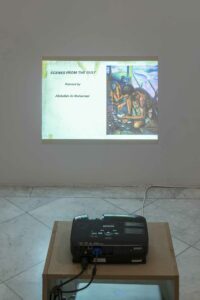
Abstract from Borrowed Faces: Archiv, 2018 - 2021, 21 files, collected and commented material by Fehras Publishing Practices of photographs, photocopies and texts

Abstract from Borrowed Faces: Archiv, 2018 - 2021, 21 files, collected and commented material by Fehras Publishing Practices of photographs, photocopies and texts

Abstract from Borrowed Faces: Archiv, 2018 - 2021, 21 files, collected and commented material by Fehras Publishing Practices of photographs, photocopies and texts
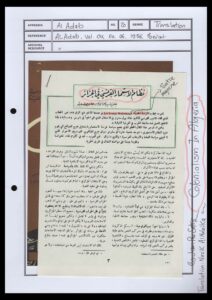
Abstract from Borrowed Faces: Archiv, 2018 - 2021, 21 files, collected and commented material by Fehras Publishing Practices of photographs, photocopies and texts

Abstract from Borrowed Faces: Archiv, 2018 - 2021, 21 files, collected and commented material by Fehras Publishing Practices of photographs, photocopies and texts
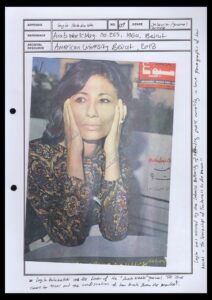
Abstract from Borrowed Faces: Archiv, 2018 - 2021, 21 files, collected and commented material by Fehras Publishing Practices of photographs, photocopies and texts

Abstract from Borrowed Faces: Archiv, 2018 - 2021, 21 files, collected and commented material by Fehras Publishing Practices of photographs, photocopies and texts

Abstract from Borrowed Faces: Archiv, 2018 - 2021, 21 files, collected and commented material by Fehras Publishing Practices of photographs, photocopies and texts

Abstract from Borrowed Faces: Archiv, 2018 - 2021, 21 files, collected and commented material by Fehras Publishing Practices of photographs, photocopies and texts

Abstract from Borrowed Faces: Archiv, 2018 - 2021, 21 files, collected and commented material by Fehras Publishing Practices of photographs, photocopies and texts

Abstract from Borrowed Faces: Archiv, 2018 - 2021, 21 files, collected and commented material by Fehras Publishing Practices of photographs, photocopies and texts
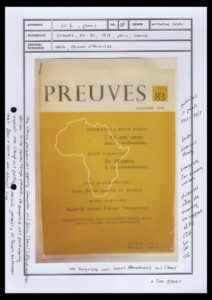
Abstract from Borrowed Faces: Archiv, 2018 - 2021, 21 files, collected and commented material by Fehras Publishing Practices of photographs, photocopies and texts

Abstract from Borrowed Faces: Archiv, 2018 - 2021, 21 files, collected and commented material by Fehras Publishing Practices of photographs, photocopies and texts

Abstract from Borrowed Faces: Archiv, 2018 - 2021, 21 files, collected and commented material by Fehras Publishing Practices of photographs, photocopies and texts
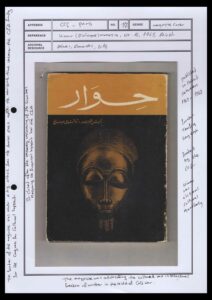
Abstract from Borrowed Faces: Archiv, 2018 - 2021, 21 files, collected and commented material by Fehras Publishing Practices of photographs, photocopies and texts

Abstract from Borrowed Faces: Archiv, 2018 - 2021, 21 files, collected and commented material by Fehras Publishing Practices of photographs, photocopies and texts

Abstract from Borrowed Faces: Archiv, 2018 - 2021, 21 files, collected and commented material by Fehras Publishing Practices of photographs, photocopies and texts

Abstract from Borrowed Faces: Archiv, 2018 - 2021, 21 files, collected and commented material by Fehras Publishing Practices of photographs, photocopies and texts

Abstract from Borrowed Faces: Archiv, 2018 - 2021, 21 files, collected and commented material by Fehras Publishing Practices of photographs, photocopies and texts
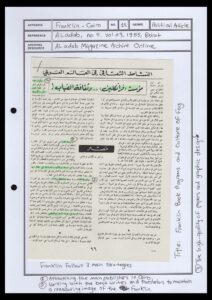
Abstract from Borrowed Faces: Archiv, 2018 - 2021, 21 files, collected and commented material by Fehras Publishing Practices of photographs, photocopies and texts

Abstract from Borrowed Faces: Archiv, 2018 - 2021, 21 files, collected and commented material by Fehras Publishing Practices of photographs, photocopies and texts

Abstract from Borrowed Faces: Archiv, 2018 - 2021, 21 files, collected and commented material by Fehras Publishing Practices of photographs, photocopies and texts

Abstract from Borrowed Faces: Archiv, 2018 - 2021, 21 files, collected and commented material by Fehras Publishing Practices of photographs, photocopies and texts

Abstract from Borrowed Faces: Archiv, 2018 - 2021, 21 files, collected and commented material by Fehras Publishing Practices of photographs, photocopies and texts
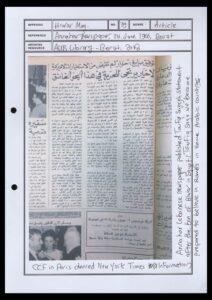
Abstract from Borrowed Faces: Archiv, 2018 - 2021, 21 files, collected and commented material by Fehras Publishing Practices of photographs, photocopies and texts

Abstract from Borrowed Faces: Archiv, 2018 - 2021, 21 files, collected and commented material by Fehras Publishing Practices of photographs, photocopies and texts

Abstract from Borrowed Faces: Archiv, 2018 - 2021, 21 files, collected and commented material by Fehras Publishing Practices of photographs, photocopies and texts

Abstract from Borrowed Faces: Archiv, 2018 - 2021, 21 files, collected and commented material by Fehras Publishing Practices of photographs, photocopies and texts

Abstract from Borrowed Faces: Archiv, 2018 - 2021, 21 files, collected and commented material by Fehras Publishing Practices of photographs, photocopies and texts

Abstract from Borrowed Faces: Archiv, 2018 - 2021, 21 files, collected and commented material by Fehras Publishing Practices of photographs, photocopies and texts

Abstract from Borrowed Faces: Archiv, 2018 - 2021, 21 files, collected and commented material by Fehras Publishing Practices of photographs, photocopies and texts

Abstract from Borrowed Faces: Archiv, 2018 - 2021, 21 files, collected and commented material by Fehras Publishing Practices of photographs, photocopies and texts
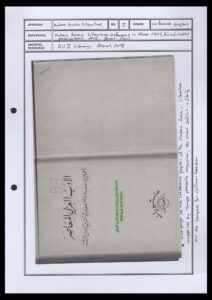
Abstract from Borrowed Faces: Archiv, 2018 - 2021, 21 files, collected and commented material by Fehras Publishing Practices of photographs, photocopies and texts
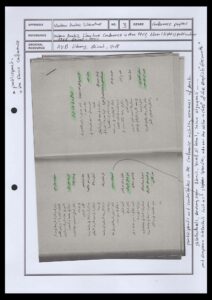
Abstract from Borrowed Faces: Archiv, 2018 - 2021, 21 files, collected and commented material by Fehras Publishing Practices of photographs, photocopies and texts

Abstract from Borrowed Faces: Archiv, 2018 - 2021, 21 files, collected and commented material by Fehras Publishing Practices of photographs, photocopies and texts

Abstract from Borrowed Faces: Archiv, 2018 - 2021, 21 files, collected and commented material by Fehras Publishing Practices of photographs, photocopies and texts
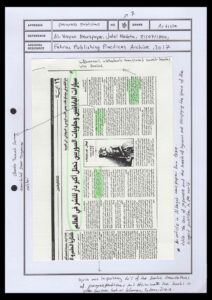
Abstract from Borrowed Faces: Archiv, 2018 - 2021, 21 files, collected and commented material by Fehras Publishing Practices of photographs, photocopies and texts

Abstract from Borrowed Faces: Archiv, 2018 - 2021, 21 files, collected and commented material by Fehras Publishing Practices of photographs, photocopies and texts

Abstract from Borrowed Faces: Archiv, 2018 - 2021, 21 files, collected and commented material by Fehras Publishing Practices of photographs, photocopies and texts

Abstract from Borrowed Faces: Archiv, 2018 - 2021, 21 files, collected and commented material by Fehras Publishing Practices of photographs, photocopies and texts

Abstract from Borrowed Faces: Archiv, 2018 - 2021, 21 files, collected and commented material by Fehras Publishing Practices of photographs, photocopies and texts

Abstract from Borrowed Faces: Archiv, 2018 - 2021, 21 files, collected and commented material by Fehras Publishing Practices of photographs, photocopies and texts

Abstract from Borrowed Faces: Archiv, 2018 - 2021, 21 files, collected and commented material by Fehras Publishing Practices of photographs, photocopies and texts

Abstract from Borrowed Faces: Archiv, 2018 - 2021, 21 files, collected and commented material by Fehras Publishing Practices of photographs, photocopies and texts

Abstract from Borrowed Faces: Archiv, 2018 - 2021, 21 files, collected and commented material by Fehras Publishing Practices of photographs, photocopies and texts

Abstract from Borrowed Faces: Archiv, 2018 - 2021, 21 files, collected and commented material by Fehras Publishing Practices of photographs, photocopies and texts

Abstract from Borrowed Faces: Archiv, 2018 - 2021, 21 files, collected and commented material by Fehras Publishing Practices of photographs, photocopies and texts

Abstract from Borrowed Faces: Archiv, 2018 - 2021, 21 files, collected and commented material by Fehras Publishing Practices of photographs, photocopies and texts

Abstract from Borrowed Faces: Archiv, 2018 - 2021, 21 files, collected and commented material by Fehras Publishing Practices of photographs, photocopies and texts

Abstract from Borrowed Faces: Archiv, 2018 - 2021, 21 files, collected and commented material by Fehras Publishing Practices of photographs, photocopies and texts

Borrowed Faces: Protagonists, 2019, hand drawings printed on flat non-woven wallpaper, 269 x 424 cm;
Borrowed Faces: Archiv, 2018 – 2019, three wooden boxes contain 21 files, photographs, photocopies and texts, wooden showcase with photographs, photocopies, books, and magazines, boxes: 59 x 32 x 80 cm, vitrine: 186 x 63 x 80 cm
installation view; Borrowed Faces: A Prologue. Stories of Publishers During the Cold War in the group exhibition There Is Fiction in the Space Between, Neuer Berliner Kunstverein, Berlin, 2019

Borrowed Faces: Protagonists, 2019, detail, hand drawings printed on flat non-woven wallpaper, 269 x 424 cm, installation view; Borrowed Faces: A Prologue. Stories of Publishers During the Cold War in the group exhibition; There Is Fiction in the Space Between, Neuer Berliner Kunstverein, Berlin, 2019

Borrowed Faces: Protagonists, 2019, detail, hand drawings printed on flat non-woven wallpaper, 269 x 424 cm
installation view; Borrowed Faces: A Prologue. Stories of Publishers During the Cold War in the group exhibition; There Is Fiction in the Space Between, Neuer Berliner Kunstverein, Berlin, 2019
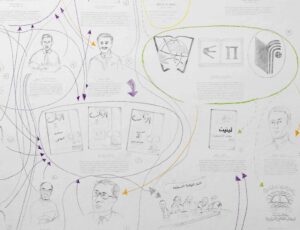
Borrowed Faces: Protagonists, 2019, detail, hand drawings printed on flat non-woven wallpaper, 269 x 424 cm
installation view; Borrowed Faces: A Prologue. Stories of Publishers During the Cold War in the group exhibition; There Is Fiction in the Space Between, Neuer Berliner Kunstverein, Berlin, 2019
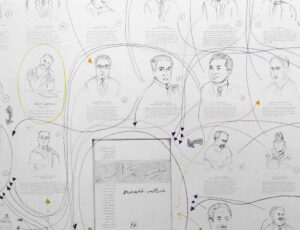
Borrowed Faces: Protagonists, 2019, detail, hand drawings printed on flat non-woven wallpaper, 269 x 424 cm, installation view; Borrowed Faces: A Prologue. Stories of Publishers During the Cold War in the group exhibition; There Is Fiction in the Space Between, 2019, Neuer Berliner Kunstverein, Berlin

Borrowed Faces: Protagonists, 2019, detail, hand drawings printed on flat non-woven wallpaper, 269 x 424 cm, installation view; Borrowed Faces: A Prologue. Stories of Publishers During the Cold War in the group exhibition; There Is Fiction in the Space Between, Neuer Berliner Kunstverein, Berlin, 2019

Borrowed Faces: Protagonists, 2019, detail, hand drawings printed on flat non-woven wallpaper, 269 x 424 cm, installation view;Borrowed Faces: A Prologue. Stories of Publishers During the Cold War in the group exhibition; There Is Fiction in the Space Between, 2019, Neuer Berliner Kunstverein, Berlin
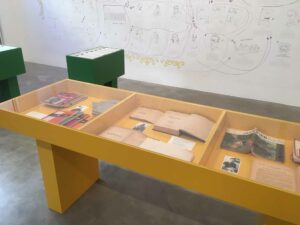
Borrowed Faces: Archiv, 2018 – 2019, detail, wooden showcase with photographs, photocopies, books, and magazines, 186 x 63 x 80 cm, installation view; Borrowed Faces: A Prologue. Stories of Publishers During the Cold War in the group exhibition There Is Fiction in the Space Between, 2019, Neuer Berliner Kunstverein, Berlin

Borrowed Faces: Archiv, 2018 – 2019, detail, wooden showcase with photographs, photocopies, books, and magazines, 186 x 63 x 80 cm, installation view; Borrowed Faces: A Prologue. Stories of Publishers During the Cold War in the group exhibition There Is Fiction in the Space Between, 2019, Neuer Berliner Kunstverein, Berlin
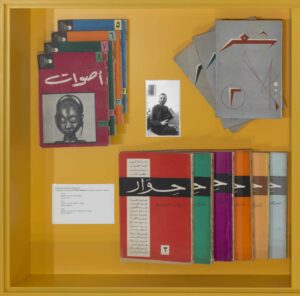
Borrowed Faces: Archiv, 2018 – 2019, detail, wooden showcase with photographs, photocopies, books, and magazines, 186 x 63 x 80 cm, installation view; Borrowed Faces: A Prologue. Stories of Publishers During the Cold War in the group exhibition There Is Fiction in the Space Between, 2019, Neuer Berliner Kunstverein, Berlin

Borrowed Faces: Archiv, 2018 – 2019, detail, wooden showcase with photographs, photocopies, books, and magazines, 186 x 63 x 80 cm, installation view; Borrowed Faces: A Prologue. Stories of Publishers During the Cold War in the group exhibition There Is Fiction in the Space Between, 2019, Neuer Berliner Kunstverein, Berlin

Borrowed Faces: Archiv, 2018 – 2019, detail, wooden showcase with photographs, photocopies, books, and magazines, 186 x 63 x 80 cm, installation view; Borrowed Faces: A Prologue. Stories of Publishers During the Cold War in the group exhibition There Is Fiction in the Space Between, 2019, Neuer Berliner Kunstverein, Berlin

Borrowed Faces: Archiv, 2018 – 2019, detail, wooden showcase with photographs, photocopies, books, and magazines, 186 x 63 x 80 cm, installation view; Borrowed Faces: A Prologue. Stories of Publishers During the Cold War in the group exhibition There Is Fiction in the Space Between, 2019, Neuer Berliner Kunstverein, Berlin

Borrowed Faces: Archiv, 2018 – 2019, detail, wooden showcase with photographs, photocopies, books, and magazines, 186 x 63 x 80 cm, installation view; Borrowed Faces: A Prologue. Stories of Publishers During the Cold War in the group exhibition There Is Fiction in the Space Between, 2019, Neuer Berliner Kunstverein, Berlin

Borrowed Faces: Archiv, 2018 – 2019, detail, wooden showcase with photographs, photocopies, books, and magazines, 186 x 63 x 80 cm, installation view; Borrowed Faces: A Prologue. Stories of Publishers During the Cold War in the group exhibition There Is Fiction in the Space Between, 2019, Neuer Berliner Kunstverein, Berlin

Borrowed Faces: Protagonists, 2019, hand drawings printed on flat non-woven wallpaper, 269 x 424 cm; Borrowed Faces: Archiv, 2018 – 2019, three wooden boxes contain 21 files, photographs, photocopies and texts, wooden showcase with photographs, photocopies, books, and magazines, boxes: 59 x 32 x 80 cm, vitrine: 186 x 63 x 80 cm, installation view;Borrowed Faces: A Prologue. Stories of Publishers During the Cold War in the group exhibition; There Is Fiction in the Space Between, 2019, Neuer Berliner Kunstverein, Berlin

Borrowed Faces: Archiv, 2018 – 2019, detail, 3 wooden boxes contain 21 files, photographs, photocopies and texts, 59 x 32 x 80 cm, installation view Borrowed Faces: A Prologue. Stories of Publishers During the Cold War in the group exhibition There Is Fiction in the Space Between, 2019, Neuer Berliner Kunstverein, Berlin

Borrowed Faces: Archiv, 2018 – 2019, detail, 3 wooden boxes contain 21 files, photographs, photocopies and texts, 59 x 32 x 80 cm, installation view; Borrowed Faces: A Prologue. Stories of Publishers During the Cold War in the group exhibition There Is Fiction in the Space Between, 2019, Neuer Berliner Kunstverein, Berlin

Borrowed Faces: Archiv, 2018 – 2019, detail, 3 wooden boxes contain 21 files, photographs, photocopies and texts, 59 x 32 x 80 cm, installation view; Borrowed Faces: A Prologue. Stories of Publishers During the Cold War in the group exhibition There Is Fiction in the Space Between, 2019, Neuer Berliner Kunstverein, Berlin
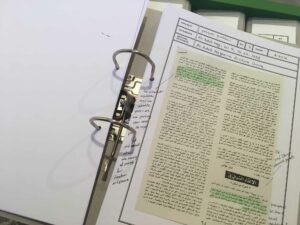
Borrowed Faces: Archiv, 2018 – 2019, detail, 3 wooden boxes contain 21 files, photographs, photocopies and texts, 59 x 32 x 80 cm, installation view; Borrowed Faces: A Prologue. Stories of Publishers During the Cold War in the group exhibition There Is Fiction in the Space Between, 2019, Neuer Berliner Kunstverein, Berlin

Abstract from Borrowed Faces: Archiv, 2018 – 2021, 21 files, collected and commented material by Fehras Publishing Practices of photographs, photocopies and texts

Borrowed Faces: Scene no. 05, page no. 01, 2020, frames with photograph, colour, digital print, 30 x 45 cm

Borrowed Faces: Scene no. 05, page no. 02, 2020, frames with photograph, colour, digital print, 30 x 45 cm

Borrowed Faces: Scene no. 05, page no. 03, 2020, frames with photograph, colour, digital print, 30 x 45 cm

Borrowed Faces: Scene no. 05, page no. 04, 2020, frames with photograph, colour, digital print, 30 x 45 cm

Borrowed Faces: Scene no. 05, page no. 05, 2020, frames with photograph, colour, digital print, 30 x 45 cm

Borrowed Faces: Scene no. 05, page no. 06, 2020, frames with photograph, colour, digital print, 30 x 45 cm

Borrowed Faces: Scene no. 07, page no. 01, 2020, frames with photograph, colour, digital print, 30 x 45 cm

Borrowed Faces: Scene no. 07, page no. 02, 2020, frames with photograph, colour, digital print, 30 x 45 cm

Borrowed Faces: Scene no. 07, page no. 03, 2020, frames with photograph, colour, digital print, 30 x 45 cm

Borrowed Faces: Scene no. 07, page no. 04, 2020, frames with photograph, colour, digital print, 30 x 45 cm

Borrowed Faces: Scene no. 25, page no. 01, 2020, frames with photograph, colour, digital print, 30 x 45 cm

Borrowed Faces: Scene no. 25, page no. 02, 2020, frames with photograph, colour, digital print, 30 x 45 cm

Borrowed Faces: Scene no. 25, page no. 03, 2020, frames with photograph, colour, digital print, 30 x 45 cm

Borrowed Faces: Scene no. 25, page no. 04, 2020, frames with photograph, colour, digital print, 30 x 45 cm

Borrowed Faces: Scene no. 25, page no. 05, 2020, frames with photograph, colour, digital print, 30 x 45 cm

Borrowed Faces: Scene no. 25, page no. 06, 2020, frames with photograph, colour, digital print, 30 x 45 cm

Borrowed Faces: Scene no. 29, page no. 01, 2020, frames with photograph, colour, digital print, 30 x 45 cm

Borrowed Faces: Scene no. 29, page no. 02, 2020, frames with photograph, colour, digital print, 30 x 45 cm

Borrowed Faces: Scene no. 29, page no. 03, 2020, frames with photograph, colour, digital print, 30 x 45 cm

Borrowed Faces: Scene no. 29, page no. 04, 2020, frames with photograph, colour, digital print, 30 x 45 cm

Borrowed Faces: Scene no. 29, page no. 05, 2020, frames with photograph, colour, digital print, 30 x 45 cm

From Borrowed Faces, issue no. 1, photo novel, 136 pages, 24 x 33,2 cm, printed in Arabic and English, 1000 copies; published by Fehras Publishing Practices

From Borrowed Faces, issue no. 1, photo novel, 136 pages, 24 x 33,2 cm, printed in Arabic and English, 1000 copies; published by Fehras Publishing Practices

From Borrowed Faces, issue no. 1, photo novel, 136 pages, 24 x 33,2 cm, printed in Arabic and English, 1000 copies; published by Fehras Publishing Practices

From Borrowed Faces, issue no. 1, photo novel, 136 pages, 24 x 33,2 cm, printed in Arabic and English, 1000 copies; published by Fehras Publishing Practices

From Borrowed Faces, issue no. 1, photo novel, 136 pages, 24 x 33,2 cm, printed in Arabic and English, 1000 copies; published by Fehras Publishing Practices

From Borrowed Faces, issue no. 1, photo novel, 136 pages, 24 x 33,2 cm, printed in Arabic and English, 1000 copies; published by Fehras Publishing Practices

From Borrowed Faces, issue no. 1, photo novel, 136 pages, 24 x 33,2 cm, printed in Arabic and English, 1000 copies; published by Fehras Publishing Practices

From Borrowed Faces, issue no. 1, photo novel, 136 pages, 24 x 33,2 cm, printed in Arabic and English, 1000 copies; published by Fehras Publishing Practices

From Borrowed Faces, issue no. 1, photo novel, 136 pages, 24 x 33,2 cm, printed in Arabic and English, 1000 copies; published by Fehras Publishing Practices

From Borrowed Faces, issue no. 1, photo novel, 136 pages, 24 x 33,2 cm, printed in Arabic and English, 1000 copies; published by Fehras Publishing Practices

From Borrowed Faces, issue no. 1, photo novel, 136 pages, 24 x 33,2 cm, printed in Arabic and English, 1000 copies; published by Fehras Publishing Practices

From Borrowed Faces, issue no. 1, photo novel, 136 pages, 24 x 33,2 cm, printed in Arabic and English, 1000 copies; published by Fehras Publishing Practices

From Borrowed Faces, issue no. 1, photo novel, 136 pages, 24 x 33,2 cm, printed in Arabic and English, 1000 copies; published by Fehras Publishing Practices

From Borrowed Faces, issue no. 1, photo novel, 136 pages, 24 x 33,2 cm, printed in Arabic and English, 1000 copies; published by Fehras Publishing Practices

From Borrowed Faces, issue no. 1, photo novel, 136 pages, 24 x 33,2 cm, printed in Arabic and English, 1000 copies; published by Fehras Publishing Practices

From Borrowed Faces, issue no. 1, photo novel, 136 pages, 24 x 33,2 cm, printed in Arabic and English, 1000 copies; published by Fehras Publishing Practices

From Borrowed Faces, issue no. 1, photo novel, 136 pages, 24 x 33,2 cm, printed in Arabic and English, 1000 copies; published by Fehras Publishing Practices

From Borrowed Faces, issue no. 1, photo novel, 136 pages, 24 x 33,2 cm, printed in Arabic and English, 1000 copies; published by Fehras Publishing Practices


































































































































